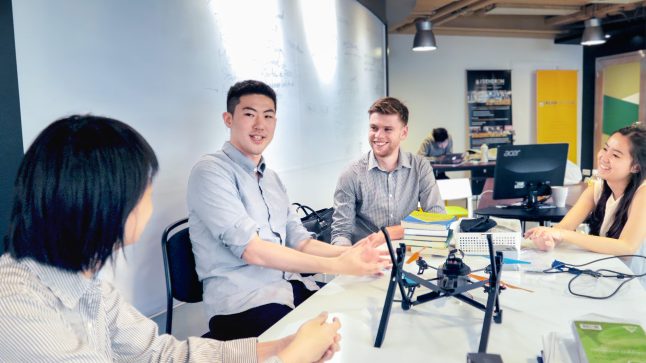
Developing a learning game is not just about making the teaching materials an easier pill to swallow, but is also an attempt to create a resource so engaging that students will beg for more. In our Game Design Meetings, we figured that there are at least eight things to consider in gamification.
- Balance between fun and education
Developing a learning game is different from preparing serious powerpoint presentations. While both aim at facilitating learning, the element of FUN is of particular importance in games. - Have a good understanding of both the educational topic and the game mechanism
To produce a game which is both fun and educational, it is of ultimate importance to figure out how to transform learning contents into gaming elements. Equally important is a good understanding of the type of game you intend to make, e.g., card game, collaborative multiplayer game, detective game, etc. The best way to familiarize yourself with a particular game mechanism is to try playing some related games. - Form a diverse team
It is important to have people with different expertise in your team to pool ideas and create a game for a diverse audience. Our Game Design Team comprises of instructional designers, multimedia experts, research associates, designers and programme developers.
While it is natural to include professional gamers in the development team, it is also crucial to invite laymen to join. Sometimes an uninformed opinion can be valuable in shaping the game. - Draw inspiration from existing games
Existing games are successful for a reason. Try them out and learn from them. For example, if you want to develop a strategic board game, recommended games include Kingdom Builder, Settlers of Catan, Carcassonne, Tickets to Ride, etc…. - Copyright
When drawing inspirations from other games, be aware of copyright issues. Consult your local copyright office if necessary. - Document all ideas discussed
Take note of all crazy ideas in your discussions, whether they are related to the main theme, scoring mechanism, functions of a particular card, anything. A seemingly useless or silly idea may eventually become an important element of the final product. Keeping a log book of ideas also makes it easier to create ‘trailers’ and draft official documents such as game specifications in the future. - Test out your prototype – again and again
Once you have developed a prototype, try playing it. Does it work? Is it playable? Does it facilitate learning? Invite your colleagues and friends to try it out. - Ensure every player has an equal chance to win
Test the game repeatedly to see if every player has a fair chance to win. Unfair games may demotivate learners.



Developing an original educational game is challenging but fun. Contact us if you are interested in developing a learning game for your students at HKU. Have fun!









